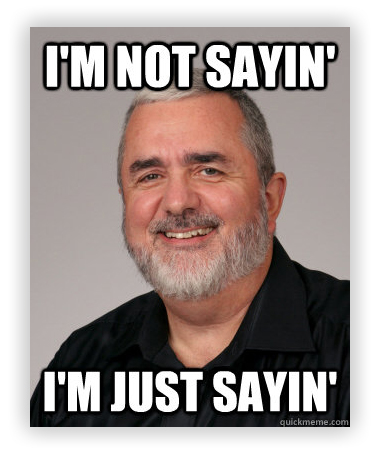We post news and comment on federal criminal justice issues, focused primarily on trial and post-conviction matters, legislative initiatives, and sentencing issues.

SAYIN’ IT DON’T MAKE IT SO
 Over 50 years ago, the Supreme Court made it clear in Machibroda v. United States that a hearing should be held whenever a post-conviction motion under 28 USC § 2255 does not “conclusively show that the prisoner is entitled to no relief.”
Over 50 years ago, the Supreme Court made it clear in Machibroda v. United States that a hearing should be held whenever a post-conviction motion under 28 USC § 2255 does not “conclusively show that the prisoner is entitled to no relief.”
Yet, § 2255 more than a half century later, hearings remain as rare as hen’s teeth, as district courts routinely contort themselves and the record to deny 2255s based on tissue-thin justifications.
The 10th Circuit last week gave district courts a well-needed wake-up call that a defendant is not proven conclusively wrong simply because a defense lawyer’s affidavit says so.
Larry Herring filed a 2255 claiming his trial attorney had been ineffective for not filing a notice of appeal after Len asked him to do so. His former attorney responded with an affidavit saying that he had told Larry that he did not do appeals, and had given his client a list of lawyers to contact. The lawyer stated emphatically that “I was never asked by Mr. Herring to file an appeal on his behalf.”
Citing that affidavit and arguing that the court told Lenny at sentencing about his appeal rights, the Government argued that Len’s complaint was meritless. The district court agreed.
 Last week, the 10th Circuit reversed, reminding courts that attorney affidavits contradicting the defendant do not justify denial: “When a district court refuses to grant an evidentiary hearing,” the Circuit ruled, “first, we ask whether the defendant’s allegations, if proved, would entitle him to relief… Here, we hold that, if true, the facts Herring alleged in his section 2255 motion to support his ineffective assistance of counsel claim would entitle him to relief. Therefore, the record does not ‘conclusively show’ that Herring is entitled to no relief, and, accordingly, the district court abused its discretion by failing to hold an evidentiary hearing to resolve Herring’s section 2255 motion.”
Last week, the 10th Circuit reversed, reminding courts that attorney affidavits contradicting the defendant do not justify denial: “When a district court refuses to grant an evidentiary hearing,” the Circuit ruled, “first, we ask whether the defendant’s allegations, if proved, would entitle him to relief… Here, we hold that, if true, the facts Herring alleged in his section 2255 motion to support his ineffective assistance of counsel claim would entitle him to relief. Therefore, the record does not ‘conclusively show’ that Herring is entitled to no relief, and, accordingly, the district court abused its discretion by failing to hold an evidentiary hearing to resolve Herring’s section 2255 motion.”
As for the argument that the district court advised Herring of his rights and defense counsel gave him some appellate attorneys’ names (none of whom he ever contacted), the 10th said, “Trial attorneys cannot outsource their constitutional obligation to advise their clients about filing an appeal nor their duty to make a reasonable effort to discover their clients’ wishes. Once the duty to consult is invoked by a defendant expressing interest in appealing, trial attorneys must properly advise their client and assess their client’s wishes before withdrawing from the case.”
Herring v. United States, Case No. 18-4023, 2019 U.S. App. LEXIS 25759 (10th Cir. Aug. 27, 2019)
– Thomas L. Root

